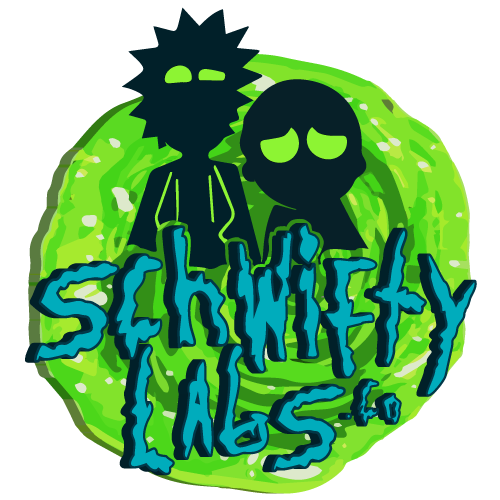CBD, LSD, Psychedelics
THC and the Default Mode Network: Are Cannabis Users Mentally More Flexible?
As cannabis gains wider acceptance in wellness and cognitive science circles, researchers are beginning to explore more than just its effects on pain and mood — they’re asking deeper questions about its role in consciousness, thought patterns, and brain network behavior.
One area gaining traction is the Default Mode Network (DMN) — a core brain system involved in self-reflection, rumination, and mental rigidity. Psychedelics like LSD and psilocybin are known to disrupt or quiet the DMN, leading to breakthroughs in creativity, open-mindedness, and ego dissolution. But what about THC, the psychoactive compound in cannabis?
Can THC influence the DMN in similar ways — and if so, are cannabis users mentally more flexible as a result?
What Is the Default Mode Network?
The Default Mode Network (DMN) is a network of brain regions that becomes most active when the mind is at rest — daydreaming, recalling memories, or thinking about oneself. Key regions include:
- Medial prefrontal cortex (mPFC)
- Posterior cingulate cortex (PCC)
- Precuneus and angular gyrus
This network plays a role in:
- Self-referential thinking
- Mental time travel (thinking about the past or future)
- Narrative construction of identity
While the DMN is essential for introspection and self-awareness, overactivity can lead to mental rigidity, depression, and anxiety, particularly when associated with negative rumination.
THC and Brain Networks: What’s the Link?
THC interacts with the brain’s endocannabinoid system (ECS), particularly CB1 receptors found in abundance throughout the cerebral cortex, hippocampus, and limbic system. These regions overlap heavily with areas involved in the DMN.
Recent studies using fMRI (functional magnetic resonance imaging) have shown that THC can:
- Alter connectivity between DMN regions
- Reduce synchronization within the DMN
- Increase functional coupling between the DMN and task-positive networks, like the salience and attention networks
In simpler terms: THC may disrupt rigid DMN patterns, increasing the brain’s ability to switch between introspection and present-moment awareness — a key marker of mental flexibility.
Mental Flexibility: What Does It Mean?
Mental flexibility is the brain’s ability to:
- Shift between different ideas or perspectives
- Break out of repetitive thought patterns
- Adapt to new information or unexpected situations
- Embrace creative or nonlinear thinking
A quieted or less-dominant DMN is associated with these states — and cannabis, especially THC, may facilitate this shift, though often less intensely than classic psychedelics.
How THC May Promote Mental Flexibility
✅ 1. Ego Softening
THC can blur the boundaries of self-focus, which may reduce over-identification with thoughts or inner narratives. This is similar — though usually gentler — to the ego-dissolving effects seen with LSD or psilocybin.
✅ 2. Enhanced Associative Thinking
THC often promotes unconventional connections between ideas, a hallmark of creative cognition and neurodivergent thought processes.
✅ 3. Disruption of Linear Thought Loops
By disrupting DMN coherence, THC may allow users to interrupt habitual rumination or repetitive mental loops, fostering emotional and cognitive flexibility.
Are Cannabis Users More Open-Minded?
Some studies and surveys suggest that frequent cannabis users score higher on measures of “openness to experience”, one of the Big Five personality traits closely linked to creativity and mental flexibility.
Cannabis has also been associated with:
- Increased divergent thinking (generating multiple solutions to a problem)
- Greater emotional expression and exploration
- Heightened perspective-shifting (e.g., seeing multiple sides of an argument)
However, these effects can vary greatly by individual, strain, and context. Some users may experience mental fragmentation, anxiety, or confusion — which can actually reduce flexibility if not well integrated.
The Role of Dose, Strain, and Set/Setting
- Low to moderate THC doses are more likely to support mental agility.
- High doses, especially in THC-dominant strains, may impair executive function and attention.
- Sativa strains or balanced hybrids are often associated with uplifting, cerebral effects that may encourage flexible thinking.
- The set (mindset) and setting (environment) also influence whether cannabis enhances or hinders openness and cognitive shift.
THC vs. Psychedelics: Similar Pathways, Different Potency
While psychedelics like LSD have been shown to profoundly suppress DMN activity, cannabis seems to modulate rather than fully disrupt this network. Think of THC as a gentler nudge — softening mental rigidity without fully dissolving ego structures.
This makes cannabis an accessible option for those seeking mental expansion without the intensity or unpredictability of full psychedelic trips.
Final Thoughts: Can Cannabis Make You More Mentally Flexible?
Yes — in the right conditions.
THC has the potential to soften rigid thinking, enhance creative cognition, and reduce overactive self-focus by modulating the Default Mode Network. But this effect is not guaranteed. It depends on:
- Dosage and frequency
- Individual brain chemistry
- Strain profile (THC:CBD ratio, terpenes)
- Intentional use and mindset
Used mindfully, THC may offer a pathway to greater mental agility, openness, and self-awareness — especially when paired with reflective practices like journaling, meditation, or creative exploration.

